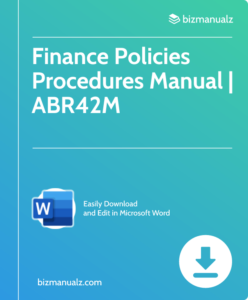What is Important About CFO Financial Disclosure Requirements?

Are you a CFO or a financial professional? Then you know that financial disclosure is a crucial aspect of running a successful business. But do you know exactly why it’s important and how it can affect your company’s reputation and bottom line? In this article, we will delve into the complexities of CFO financial disclosure requirements to help you understand their importance and implications for your business. What is Important About CFO Financial Disclosure Requirements?
What is a CFO?
A CFO, short for Chief Financial Officer, is a highly important executive in a company who is responsible for overseeing its financial activities. They are in charge of financial planning, budgeting, reporting, and analysis, all while ensuring the financial well-being of the organization.
The role of a CFO is to offer strategic guidance, make well-informed decisions, and maintain financial integrity. They collaborate closely with other departments and stakeholders, providing valuable financial insights and recommendations. With their expertise, a CFO plays a crucial role in driving the company’s profitability, growth, and long-term success.
What Are the Responsibilities of a CFO?
The role of a CFO encompasses a wide range of responsibilities that are crucial for a company’s financial well-being and success. These responsibilities include:
- Financial planning and analysis
- Budgeting
- Risk management
- Financial reporting
- Strategic decision-making
Additionally, the CFO is responsible for ensuring compliance with financial regulations and overseeing all financial operations within the company. A real-life example that demonstrates the importance of a CFO’s role is the Enron scandal, where the unethical practices and financial mismanagement of the CFO ultimately led to the company’s downfall and eventual bankruptcy. This serves as a reminder of the vital role that a CFO plays in maintaining transparency, accountability, and ethical financial practices within an organization.
What Are Financial Disclosure Requirements?
Financial disclosure requirements are regulations that mandate companies to disclose their financial information to the public and relevant regulatory bodies. These requirements are in place to promote transparency, protect investors, and ensure fair and efficient markets. They typically involve submitting regular financial statements, reports, and disclosures.
Failure to comply with these requirements can lead to legal consequences and harm a company’s reputation. To meet these obligations, CFOs must keep accurate records, follow accounting standards, and stay informed about changes in regulations. By doing so, they play a crucial role in maintaining the integrity and credibility of the financial system.
What Information Needs to be Disclosed?
When it comes to financial disclosure requirements for CFOs, it is crucial to understand what information needs to be disclosed. This includes financial statements, such as balance sheets, income statements, and cash flow statements, as well as information about the company’s operations, risks, and future prospects. Other necessary disclosures may include related party transactions, executive compensation, and significant events or changes in the company’s financial position.
To ensure transparency and accountability in financial reporting, it is recommended for CFOs to proactively engage with legal counsel and auditors to stay updated on regulations and implement strong internal controls for accurate and timely financial disclosures.
Who is Responsible for Ensuring Compliance with Financial Disclosure Requirements?
The primary responsibility of the CFO is to ensure compliance with financial disclosure requirements. They play a crucial role in overseeing the accurate reporting of financial information to stakeholders, which includes providing transparent and timely disclosures, adhering to regulatory guidelines, and implementing internal controls to prevent fraudulent activities.
The CFO works closely with auditors and legal counsel to ensure compliance. Failure to comply with these requirements can result in legal consequences, damage to the company’s reputation, and loss of investor trust.
To ensure compliance, CFOs should remain updated on regulations, implement internal controls, and collaborate with experts. Pro-tip: It is important to regularly communicate with the audit committee and board of directors to maintain transparency.
Why Are CFO Financial Disclosure Requirements Important?
As the role of a Chief Financial Officer (CFO) becomes increasingly crucial in today’s business landscape, so do the financial disclosure requirements that come with the position. In this section, we will discuss the significance of CFO financial disclosure requirements and why they are essential for companies and investors. From promoting transparency and compliance with regulations to protecting against fraudulent activities, these requirements play a vital role in maintaining the integrity and trust of financial information.
1. Transparency for Investors
Transparency is a crucial aspect of financial disclosure requirements for CFOs when it comes to investors. To ensure transparency, CFOs can follow these steps:
- Regularly communicate with investors through investor relations initiatives, providing updates on financial performance and strategic direction.
- Disclose accurate and timely financial information to investors, including financial statements, earnings reports, and other relevant disclosures.
- Provide clear and comprehensive explanations of financial results, highlighting key performance indicators and potential risks.
- Engage in open and honest dialogue with investors, addressing their concerns and inquiries promptly and transparently.
- Adopt best practices for corporate governance and ethical conduct, ensuring that the company operates with integrity and transparency.
2. Compliance with Regulations
Compliance with regulations is a crucial responsibility for CFOs to ensure transparency, protect against fraud, and maintain a company’s reputation. Here are steps CFOs can take to ensure compliance:
- Stay informed on regulations: Keep up-to-date with financial reporting requirements, such as the Sarbanes-Oxley Act.
- Implement internal controls: Establish processes and systems to monitor and report financial information accurately.
- Work with auditors and legal counsel: Collaborate with external auditors and legal experts to ensure compliance and address any potential issues.
Fact: Non-compliance with financial disclosure requirements can lead to significant legal consequences and damage a company’s reputation.
3. Protection Against Fraud
Protection against fraud is a critical aspect of CFO financial disclosure requirements. To safeguard against fraudulent activities, CFOs should follow these steps:
- Implement robust internal controls to detect and prevent fraudulent activities.
- Regularly review financial statements to identify any irregularities or suspicious transactions.
- Conduct thorough background checks on employees with access to financial information.
- Ensure segregation of duties to prevent any single individual from having complete control over financial processes.
- Stay updated on fraud detection techniques and industry best practices.
By diligently adhering to these steps, CFOs can significantly reduce the risk of fraud and protect the company’s financial interests.
What Happens if a CFO Does Not Comply with Financial Disclosure Requirements?
As a Chief Financial Officer (CFO), it is crucial to comply with financial disclosure requirements set by regulatory bodies. Failure to do so can result in serious consequences for both the CFO and the company.
In this section, we will discuss the potential legal repercussions of non-compliance, as well as the damage it can cause to the company’s reputation. Understanding the importance of adherence to financial disclosure requirements is essential for any responsible and ethical CFO.
1. Legal Consequences
Violating financial disclosure requirements can result in significant legal consequences for CFOs, including fines, penalties, and even imprisonment. To ensure compliance, CFOs should take the following steps:
- Stay informed on regulations: Regularly review and stay updated on financial disclosure regulations to ensure full compliance with legal requirements.
- Implement internal controls: Establish robust internal controls and procedures to accurately capture and report financial information in accordance with the law.
- Work with auditors and legal counsel: Collaborate with auditors and legal counsel to ensure accurate and timely financial disclosures and address any compliance concerns that may arise.
By following these steps, CFOs can mitigate the risk of facing legal consequences associated with non-compliance with financial disclosure requirements.
2. Damage to Company Reputation
Failing to comply with financial disclosure requirements can have severe consequences for a CFO, including damaging the company’s reputation. In order to safeguard the company’s image, CFOs can take several steps:
- Ensure accurate and timely financial reporting.
- Implement strong internal controls to prevent financial misstatements and avoid potential damage to the company’s reputation.
- Regularly review and update financial policies and procedures.
- Communicate openly and transparently with stakeholders to maintain trust and credibility.
- Monitor industry trends and best practices to stay ahead of potential reputation risks.
Fact: According to a survey by Deloitte, 87% of investors consider a company’s reputation as one of the most critical factors in their investment decisions.
How Can CFOs Ensure Compliance with Financial Disclosure Requirements?
As a CFO, it is crucial to understand and comply with financial disclosure requirements. In order to do so, there are several key steps that CFOs can take to ensure compliance and avoid potential legal and financial consequences. In this section, we will discuss the importance of staying informed on regulations, implementing internal controls, and working closely with auditors and legal counsel. By following these guidelines, CFOs can confidently navigate the complex landscape of financial disclosure requirements.
1. Stay Informed on Regulations
To ensure compliance with regulations as a CFO, it is important to follow these steps:
- Stay informed by regularly monitoring updates from regulatory bodies such as the SEC or FASB.
- Stay updated on changes in regulations by joining professional associations and attending industry conferences.
- Exchange information and best practices related to regulatory compliance by engaging with industry peers.
- Interpret and understand the implications of new regulations by working closely with legal counsel.
- Keep track of regulatory changes by establishing a system and ensuring that relevant departments are informed and educated.
- Assess compliance with regulations and identify areas for improvement by conducting regular internal audits.
2. Implement Internal Controls
Implementing internal controls is crucial for CFOs to ensure compliance with financial disclosure requirements. Here are steps to follow:
- Evaluate existing controls: Assess the effectiveness of current controls and identify any gaps or weaknesses.
- Implement Internal Controls: Develop clear and comprehensive guidelines for financial reporting, including documentation and approval processes.
- Segregate duties: Separate responsibilities to avoid conflicts of interest and prevent fraud or errors.
- Implement monitoring systems: Establish mechanisms to regularly review and monitor financial activities, such as periodic audits and internal reviews.
- Provide training and education: Educate employees on financial compliance, policies, and procedures to promote understanding and adherence.
CFO Financial Disclosure Requirements
Regulations requiring corporations to reveal their financial information to the public and pertinent regulatory bodies are known as financial disclosure requirements. These regulations are in place to guarantee fair and efficient markets, safeguard investors, and advance transparency. Usually, they entail the regular submission of financial reports, disclosures, and statements.
A company’s reputation may suffer and legal repercussions may result from noncompliance with these regulations. CFOs must adhere to accounting standards, maintain accurate records, and keep up with regulatory changes in order to fulfill these responsibilities. They contribute significantly to preserving the credibility and integrity of the financial system by doing this.
Frequently Asked Questions

What is Important About CFO Financial Disclosure Requirements?
CFO financial disclosure requirements are important because they provide transparency and accountability to stakeholders and investors regarding a company’s financial health and performance.
Why are CFO financial disclosure requirements necessary?
CFO financial disclosure requirements are necessary to ensure fair and accurate reporting of a company’s financial information, which helps investors make informed decisions regarding their investments.
What are some examples of CFO financial disclosure requirements?
Examples of CFO financial disclosure requirements include submitting quarterly and annual financial reports, disclosing any potential conflicts of interest, and providing a breakdown of executive compensation.
Who is responsible for ensuring compliance with CFO financial disclosure requirements?
The Chief Financial Officer (CFO) is typically responsible for ensuring compliance with financial disclosure requirements, as it falls under their role to oversee financial reporting and disclosure.
What are the consequences of not complying with CFO financial disclosure requirements?
Non-compliance with CFO financial disclosure requirements can result in legal and financial repercussions for the company and its executives, including fines, penalties, and damage to the company’s reputation.
How do CFO financial disclosure requirements benefit stakeholders and investors?
CFO financial disclosure requirements benefit stakeholders and investors by providing them with transparent and accurate information about a company’s financial health, allowing them to make informed decisions regarding their investments.

















Leave a Reply